- Bernard Preston homepage
- Happy Tum
The happy tum
The happy tum is full of controversies but let's get to the basics. When the majority of nutritional scientists are in agreement, it makes no sense to get caught up in the many fads seen on the internet. The issues like gluten, lectins and whether we should avoid all starch serve only as red herrings for most of us.
The happy tum is part of the well-being for Christians initiative being taught at the Church of the Ascension in KZN, South Africa.
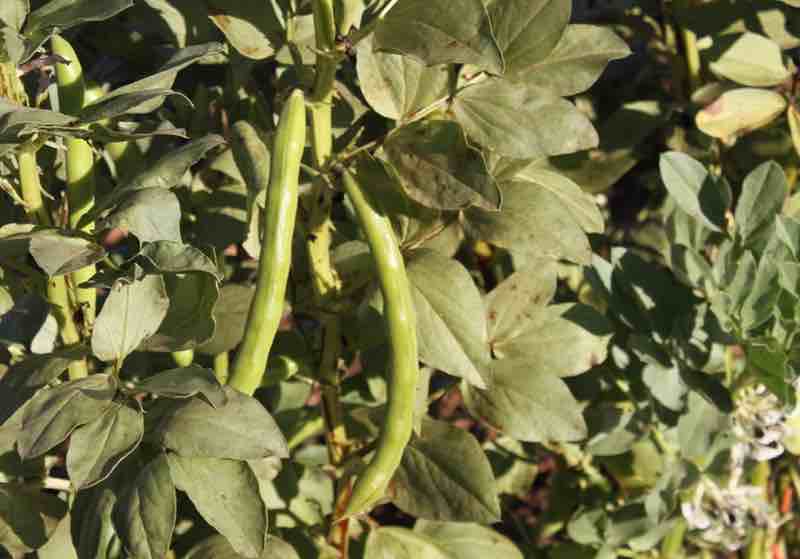
For me acquiring a taste for broad beans was a nightmare; for fifty-years I eschewed them. Then I discovered that fresh from the garden they are quite different to the old starchy legumes seen in the shops. This journey of rediscovering the happy tum may mean a return to growing as much of your own food as possible.
Change is difficult for all of us; turning it into a spiritual journey of discovery gives you a far greater chance of success in dealing with your cravings.
Our tongues also must be born again; and not just the wicked words that most of say periodically. Our taste-buds too need to be transformed if we are to experience greater wellness.
Recognising that our bodies are the temples of the Holy Spirit, brings home the import of ringing in change before the onset of pain; by then disease is well established. We are his hands and feet; if we get sick and even die long before our time, we leave behind a gaping hole that cannot easily be filled.
Who then will be able to give out the kindness that our world so desperately needs? And the knowledge that you have acquired will be lost for ever. Make a promise now and keep it; to take care of your body. A happy tum will be one of the many benefits.
But Brother Ass as St Francis of Assisi called his body is a stubborn creature; he knows how to dig his heels in.
Illness is the doctor to whom we pay most heed; to kindness and knowledge we make promises only. Pain we obey.
- Marcel Proust
Controversy
Firstly there are the lies and deceit of the food industry as they try to dupe us into spending vast amounts of money on third-grade meals. The opinions of the many gurus out there often serve to confuse us further, though each of them may have a gem to be considered.
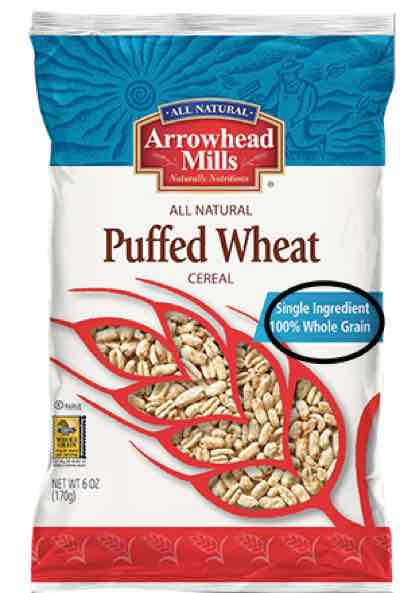
Arrowhead mills claim that their puffed wheat is 100 percent whole grain. But one look at the ingredients tells you there is no fat, nor the vitamin E for which the grain is famous; it simply cannot be a 100% whole grain. The cereal has been doctored and humans had better beware.
The carbohydrate story
The carbohydrate story that is being peddled is that it is all bad, and we need to consuming less than 20g per day; about the amount in a slice of bread.
Or, is it the refined carbohydrates that must be eschewed?
Are butternut and sweet potatoes, apples and plums to be avoided along with sugar and cake flour?
But there is a place for banting for those who are diabetic.
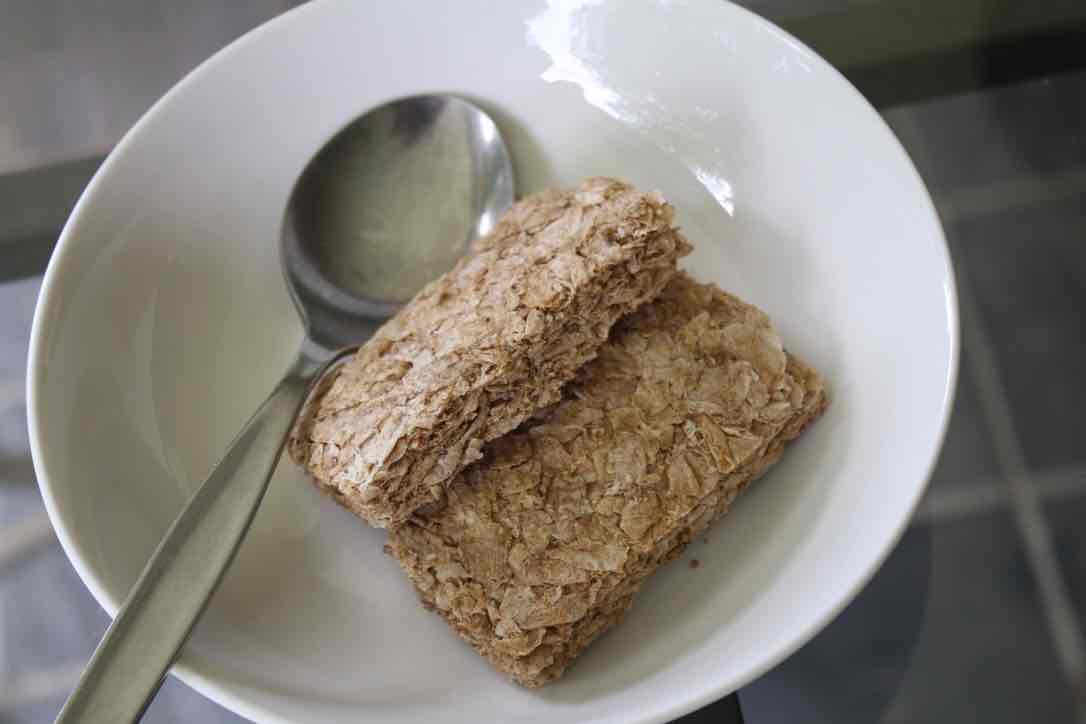
Wheat-bix is one of the few cereals where the grain is not first refined, the fibre and germ removed, and then enriched with synthetic vitamins and minerals.
But then how much sugar, or refined honey do you pour over it?
Is peanut butter keto is a question worth considering. Yes it is but certainly not if there is added sugar and especially if it eaten as a PN&J sandwich.
The fat story
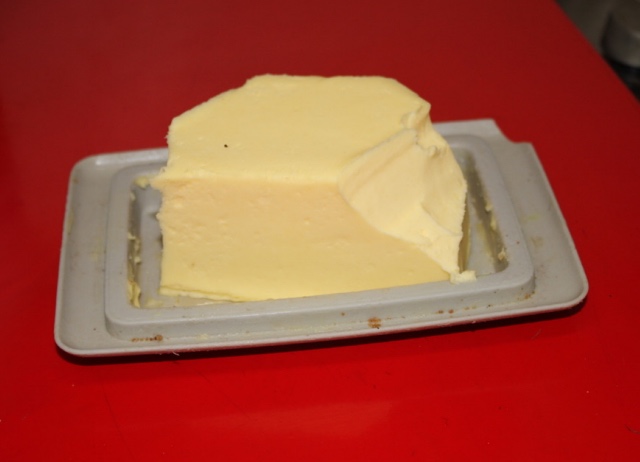
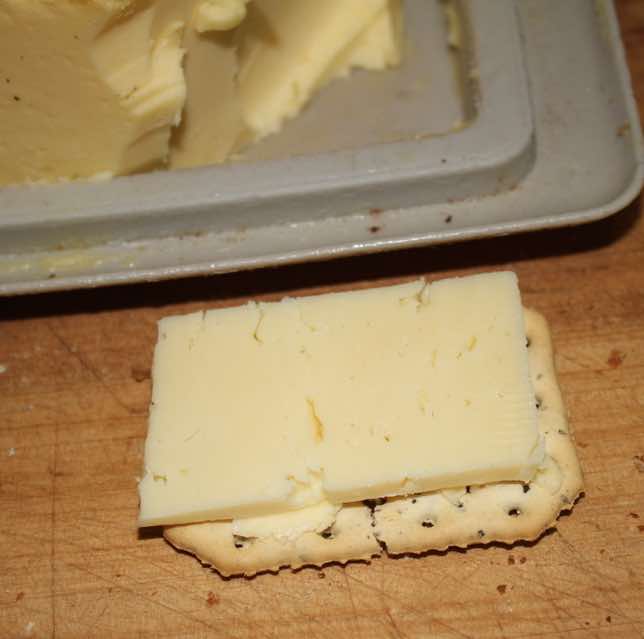
We are told that if we cut out all the fat from our food that we will lose weight, and our tums will be a lot happier.
But is it the fat that makes you obese? Is that the whole story?
Sixty percent of the brain is fat, and nerves are lined with a myelin sheath that will not conduct if deficient. There is increased risk of serious illnesses like motor neuron disease.
We simply cannot live without the essential fatty acids; they make up the very building blocks from which our bodies are made. There is much controversy over the many oils but everyone agrees that olives and avocados are good for us.
It is a fact that after a survey of all the literature that there is no advantage in changing to margarine; butter is back, to use the buzzword. And should never have been sent to Coventry.
Biscuits and cheese are often castigated because of the large amount of saturated fat, but in fact increasingly it is the refined carbohydrate that is being fingered that raises blood glucose, and consequent inflammation of the inner linings of arteries.
Is it the biscuit, the butter or the cheese that is the real devil? Overall of course is the context of the whole meal that is important; if that is all you are having for lunch, then naturally you are going to have an unhappy tum, because of what is missing from a wholesome meal.
Type 2 diabetes and obesity are more related to refined carbohydrate than the fat in butter and cheese.
The gluten story
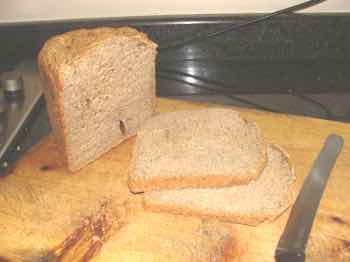
You will hear frequently that staying away from gluten is what will give you a happy tum. But the fact of the matter is that only one percent of us are intolerant; just how sure are you that it is bread that is the guilty party?
Having said that I stay away from supermarket bread; virtually all of it, even the best wholewheat, is baked from flour refined to a degree. It contains none of the germ-oil and vitamin E that are an essential part of the grain. Much of the protein and bran have been removed.
Going off all bread because of a supposed gluten intolerance means greatly reducing your consumption of whole-grains.
The research is unequivocal. Whole-grains reduce cardiovascular disease.
The solution to the dilemma is sourdough. Exposure to the bacteria in the starter helps to predigest the flour, and break down the short chains that escape enzyme action and may cause inflammation of the colon; the so-called leaky gut syndrome.
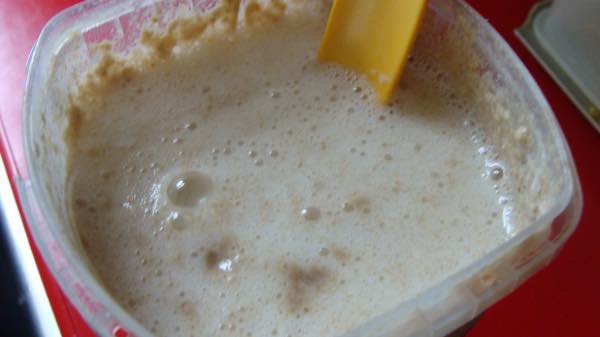
It is the unusual structure of proline, an amino acid in gluten, that makes it more difficult for the enzymes in the small intestine to digest the flour.
The lectin story
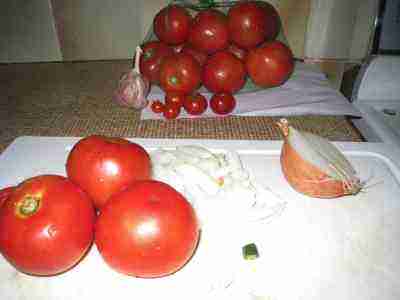
Lectins inhibit the absorption of minerals in the intestine, and contribute to the so-called leaky gut and inflammation. They are found is many nutritious foods, and are especially high in whole grains, seeds and legumes.
Distinguished author Dr Stephen Gundry recommends we avoid them. What he does not mention is that all three of these foods have been proved to be extremely beneficial to our general well-being. Like tomatoes are also the greatest source of an antioxidant called lycopene; men who eat them daily have half the rate of malignant prostate disease.
Also, if you avoid legumes, the principal source of plant protein, then you have to consume more meat, which the WHO says is probably tumour-forming.
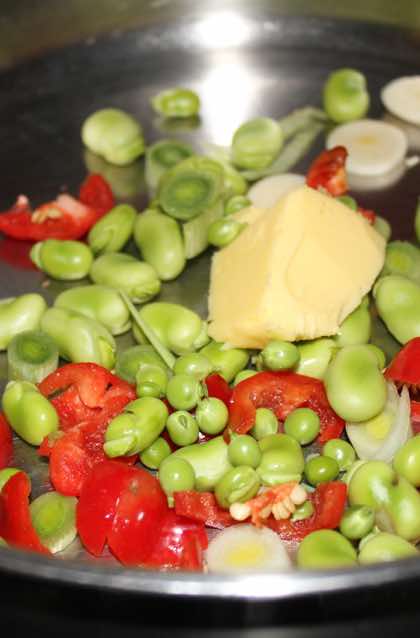
Where I would agree is that green peas and beans have lower levels of lectins. To enjoy them, it is best to grow them in your own garden. They get starchy and horrid very quickly when bought from the supermarket.
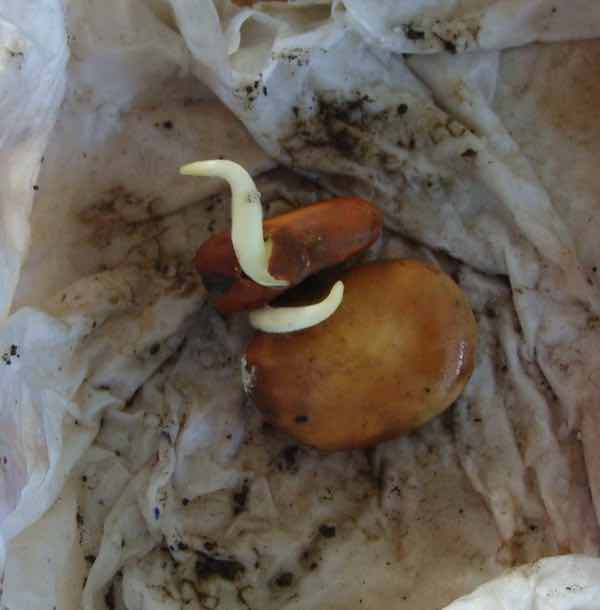
Broad beans are one of our favourites not only because of their high protein content but also the L-dopa which the happy tum needs to produce many neurotransmitters.
There is a gaping flaw in Dr Gundry's argument. He goes to great lengths to tell us that lectins and phytates are terrible for our wellness; but we can enjoy them freely if we take his supplement. This entirely destroys his credibility in my opinion.
The probiotic story
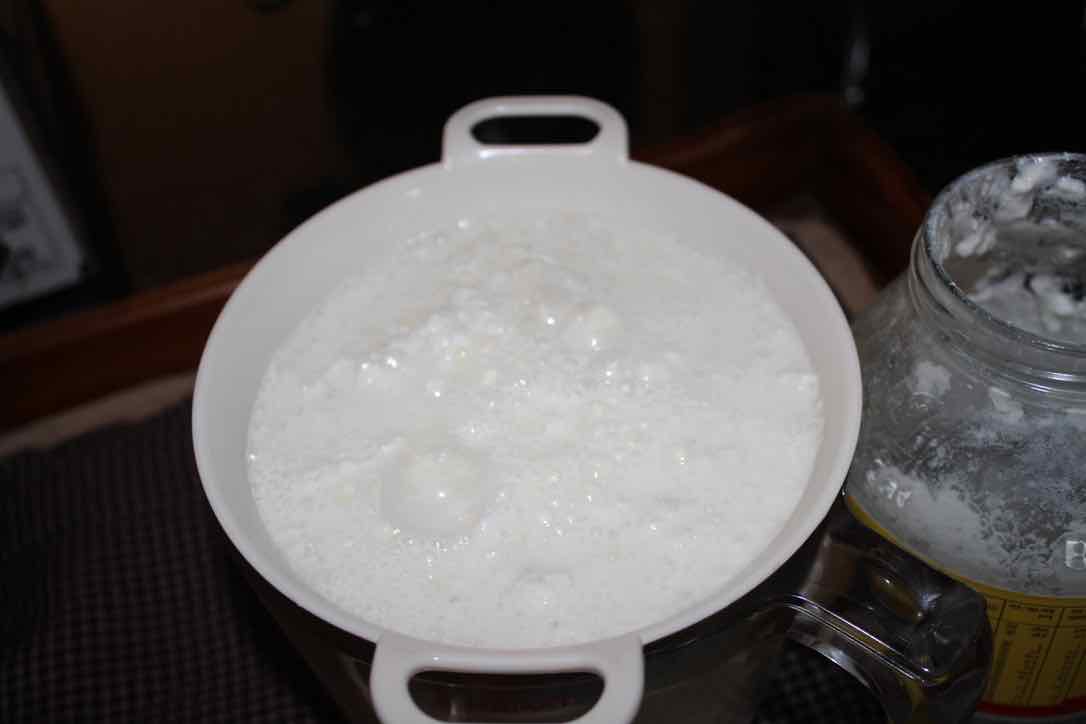
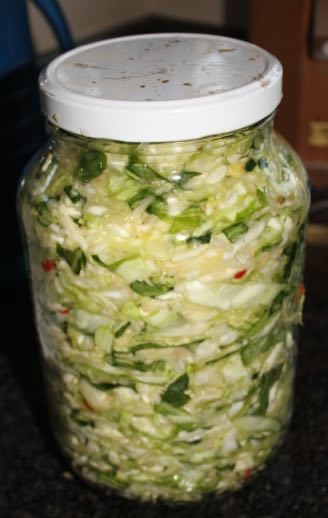
We need more fermented food to supply friendly bugs to the intestine. Astonishingly, the microbiome weighs a massive 2 kg; more than four pounds. These friendly bacteria, yeast and protozoans are adversely affected by antibiotics, artificial-sweeteners and in general by chemicals added to our food.
The evidence supporting dietary interventions in the treatment of Parkinson's Disease is compelling; and it all begins in the happy tum.
These bugs synthesize a wide range of neurotransmitters that communicate directly with the brain. Anything that affects them has a profound effect on the happy tum, and our general well-being.
Sauerkraut, kefir and kombucha are three different probiotics commonly used today. They will provide the broad diversity of bugs that we cannot get from pills. Let your food be your medicine was the call of the great Hippocrates. Make them yourself for a fraction of the cost; it is not difficult.
Retraining our tongues that sour is generally better than sweet; make your own homemade sauerkraut when cabbage is in season; better still turn it into kimchi.
"All diseases begin in the gut."
- Hippocrates
Whilst this is not completely true, as in the case of a viral infection, how successfully you respond to the invasion is closely allied to the wellbeing of the microbiome.
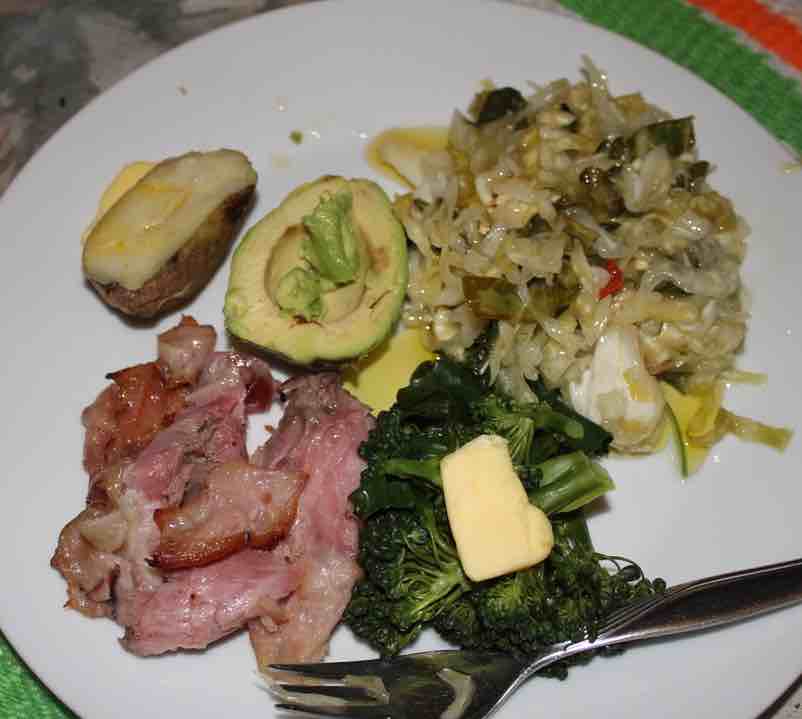
The nightshade story
Are potatoes, tomatoes and brinjals the cause of your unhappy tum? Is the nightshade family the source of all your problems? Probably not.
And what about new potatoes? Harvested straight from the ground, any housewife will tell you they are quite different to those from cold storage. In the first place they hardly affect blood glucose and can probably, cautiously, be enjoyed even by diabetics. If you scrape the skin with your nail, it should slide right off. They are also particularly rich in folate; read more at frailty and vitamin B9.
I have already said and it is worth repeating; avoiding tomatoes doubles the risk of the men in your family getting a prostate tumour the nastiest of them all.
And the eggplant has proven properties of lowering cholesterol.
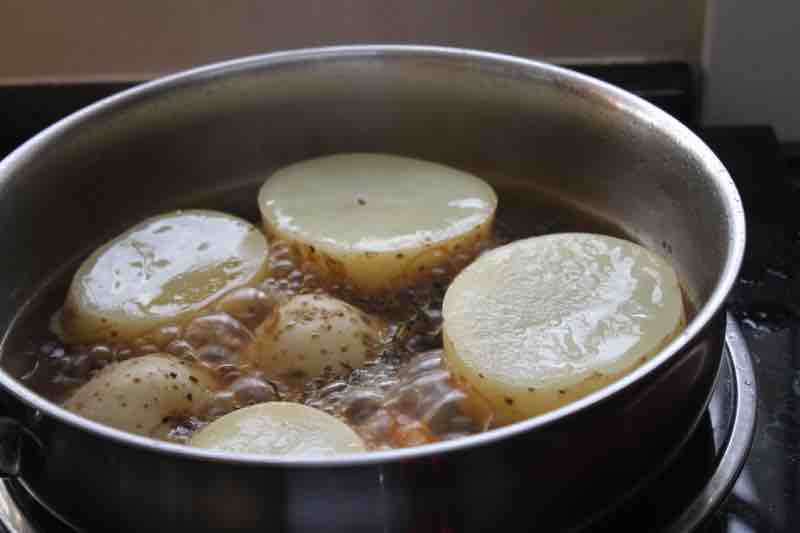
The sugar story
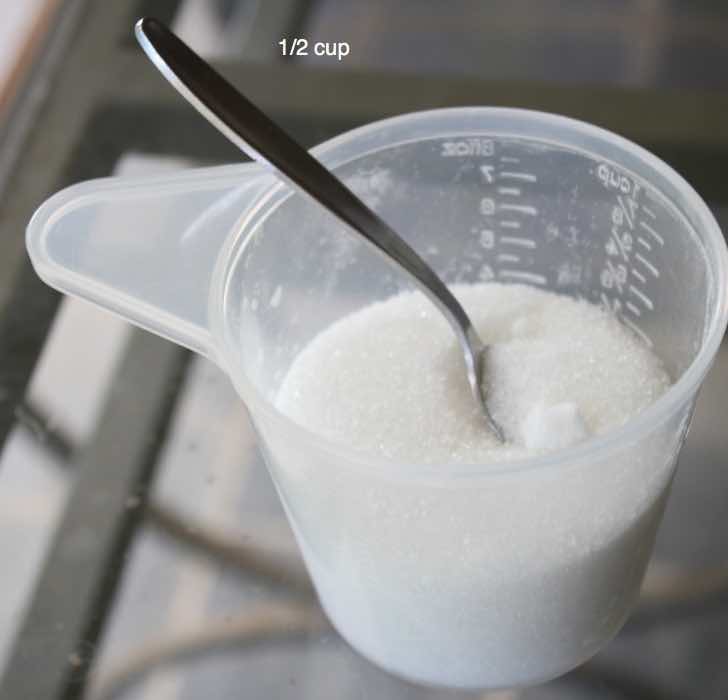
Sugar is a refined carbohydrate directly contributing to obesity and type-2 diabetes. In small amounts, it is probably fine.
How much is a small amount? That is undefined but arbitrarily I restrict myself to three teaspoons per day. Today I have had none at all.
The average American, and probably South African too, consumes half a cup per day, or one hundred pounds of sugar every year. Not only does it cause morbid obesity, with all its attendant problems, but also stimulates the bacteria that do not contribute to a happy tum.
Highly refined honey and maple syrup are probably not much better.
Caring for the temple
Clearly the happy tum is beset by very complex and controversial issues. We are glad, if our ears and hearts are attuned, that the Spirit will lead us into all truth. Listen to your body too; it will tell your what is good and bad for you.
Hiatus hernia
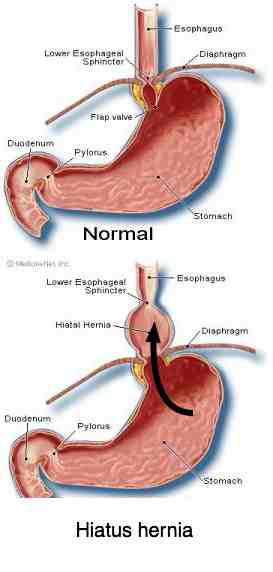
The lining of the stomach is protected from the very strong acid by a thick layer of mucus; however the oesophagus is not. During the day the fluid is kept down by gravity, but at night if the sphincter is weak, it may migrate into the food pipe causing indigestion and frank pain.
Eventually it may cause a serious condition called Barrett's eosophagus.
Surgery is difficult and often not successful.
Here are three thoughts for those with an unhappy tum at night.
- Soup is always enjoyed first at dinner for a very good reason. Do not drink liquids with or after your meals if you suffer from heartburn.
- Eat less starch at supper; bread, potatoes and rice often contribute to indigestion at night.
- Have small dinners, or eat very early; take a walk after supper.
- Lie on your left side for the first half of the night.
Constipation
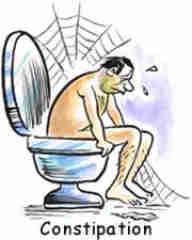
Do you really need medication and suppositories for the constipated tum? Here a 7 home remedies to try first.
- The beetroot is God's gift to the gummed up tum. It is rich in both types of fibre, and a superb source of iron too. Have a half every day; raw, cooked or bottled.
- Five stewed prunes every morning medical science has proved are more effective than the most frequently prescribed treatment.
- Have plenty of green leafy vegetables like kale, spinach and beet greens.
- A salad every day will do wonders to increase the roughage in your food.
- Fruit in general is helpful.
- Take a walk daily.
- When you gotta go, then you had better go; do not delay.
Constipation is a serious condition causing many of the gross ailments of the unhappy tum; those wanting to care better for the temple had better eat a lot more fibre. 34 percent of those over sixty suffer from this maliferous condition. It is the primary cause of colorectal disease.
The pressure-cooker is the easy way to prepare your beetroot, by the way.
- Why is whole grain better? The importance of cooling a starch overnight and then reheating the next day; it's all about retrogradation.
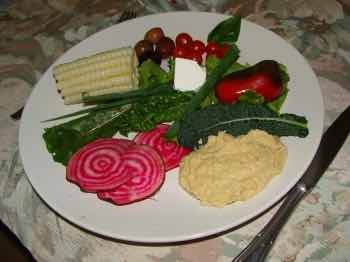 |
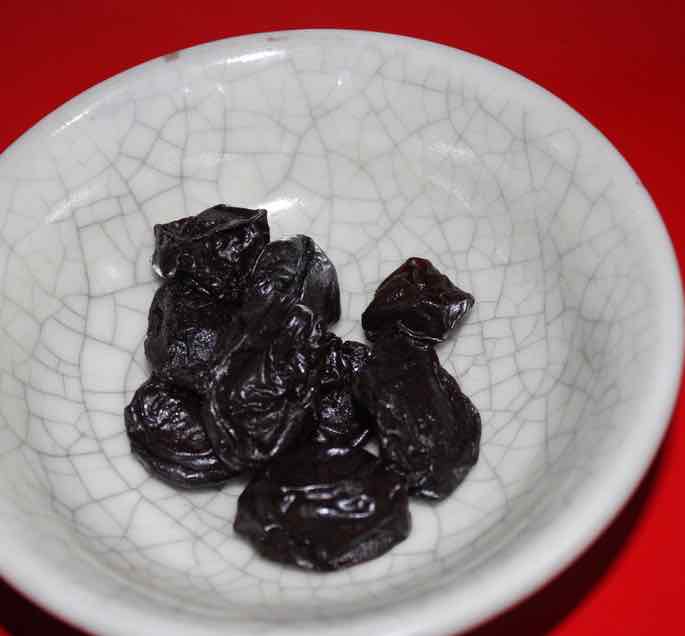 |
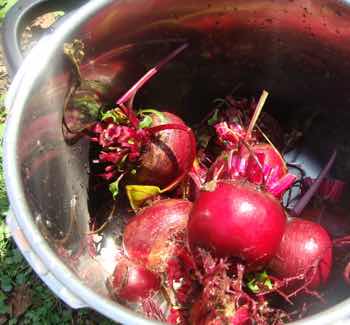 |
Bernie's story
For most of my life I have struggled with a very unhappy tum. As a child, continuing until my wife attended a lecture on the virtues of fibre when I was nearly thirty, I suffered terribly with constipation.
Then around fifty years of age I began to experience dreadful heartburn at night which continued for more than a decade until a chance encounter with kefir; it virtually cured my pain within a week.
Then a tremor started in my right hand. Constipation is one of the risk factors of Parkinson's Disease. Nor-epinephrine that controls gut motility is produced from dopamine in the body.
Now I have very little trouble, provided that I continue with the regimen set out above.
- Eggs Florentine for breakfast, a large salad for lunch and kale or spinach for supper. Chew thoroughly and eat slowly.
- Very limited starch, and especially bread, for supper.
- Enjoying a glass of homemade kefir at least once a week.
- Little to drink with or after dinner, and especially coffee.
- Sleep on my left side until midnight.
Caring for the temple, and in this instance ensuring a happy tum, means applying your mind and listening to your body. You will most likely have some different issues.
Blue zones are where folk are ten times more likely to live to one hundred years old, and strong and vital old age is the norm. All are gardeners and eat much of the food they grow. All interestingly enjoy broad beans, they are religious and community life is strong.
Broad beans are the only food that will produce pharmaceutical quantities of L-dopa. Provide I eat them daily the tremor in my hand ceases almost completely; I can enjoy soup without spilling.
We are trying to create a cyan zone which means caring for self and Mother Earth; combining the virtues of blue and green living.
A controversial conclusion
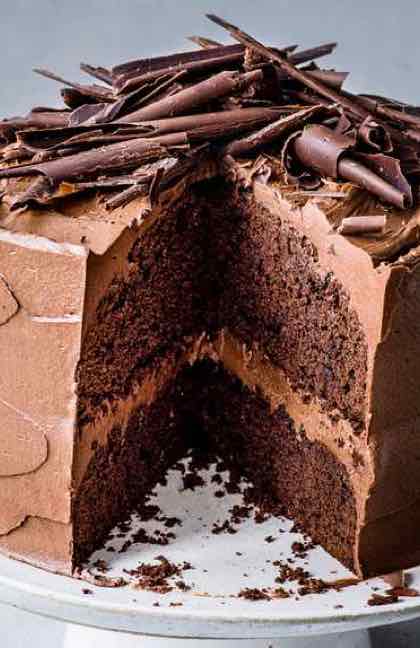
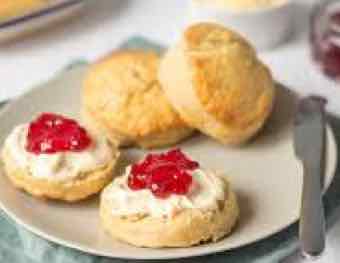
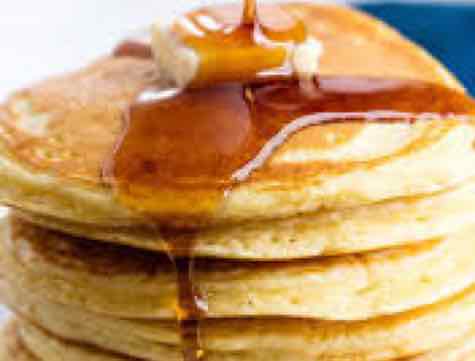
Why is that church meetings often conclude with the very worst foods for the happy tum? It is my understanding that we grasp full well that the motor function of the tongue is a wildfire; however the special sensory part of our taste buds remains largely unsaved, which is why Christians are little or no more healthy than the general public.
We will survive pancakes on Shrove Tuesday once a year, but generally treats like this need to be kept for the occasional celebration when we do not want to appear too stiffed-necked!
The happy tum
The happy tum looks at the many issues that we face, and focuses on ways to deal with the hiatus hernia and constipation using probiotics and more fibre.
When browsing use right click and "Open Link in New Tab" or you may get a bad gateway signal.
Newsletter
Our newsletter is entitled "create a cyan zone" at your home, preserving both yourself and Mother Earth for future generations; and the family too, of course. We promise not to spam you with daily emails promoting various products. You may get an occasional nudge to buy one of my books.
Here are the back issues.
- Lifestyle and ideal body weight
- What are ultra-processed foods?
- Investing in long-term health
- Diseases from plastic exposure
- Intensive lifestyle management for obesity has limited value
- A world largely devoid of Parkinson's Disease
- The impact of friendly bacteria in the tum on the prevention of cancer
- There's a hole in the bucket
- Everyone is talking about weight loss drugs
- Pull the sweet tooth
- If you suffer from heartburn plant a susu
- Refined maize meal and stunting
- Should agriculture and industry get priority for water and electricity?
- Nature is calling
- Mill your own flour
- Bake your own sourdough bread
- Microplastics from our water
- Alternative types of water storage
- Wear your clothes out
- Comfort foods
- Create a bee-friendly environment
- Go to bed slightly hungry
- Keep bees
- Blue zone folk are religious
- Reduce plastic waste
- Family is important
- What can go in compost?
- Grow broad beans for longevity
- Harvest and store sunshine
- Blue zone exercise
- Harvest and store your rainwater
- Create a cyan zone at your home
Did you find this page interesting? How about forwarding it to a friendly book or food junkie? Better still, a social media tick would help.
- Bernard Preston homepage
- Happy Tum
Address:
56 Groenekloof Rd,
Hilton, KZN
South Africa
Website:
https://www.bernard-preston.com